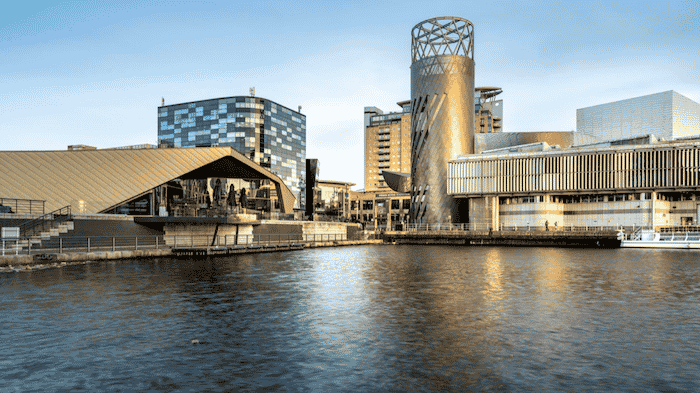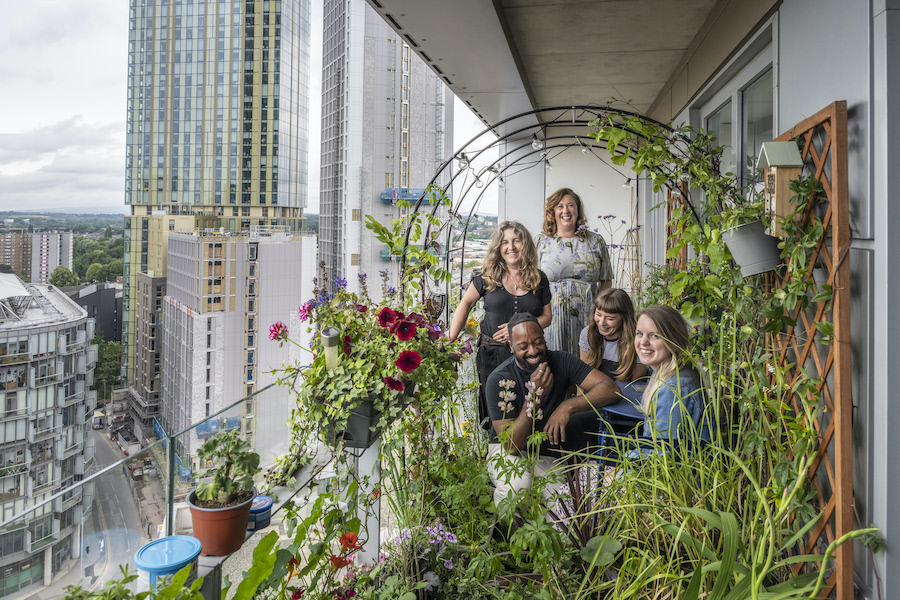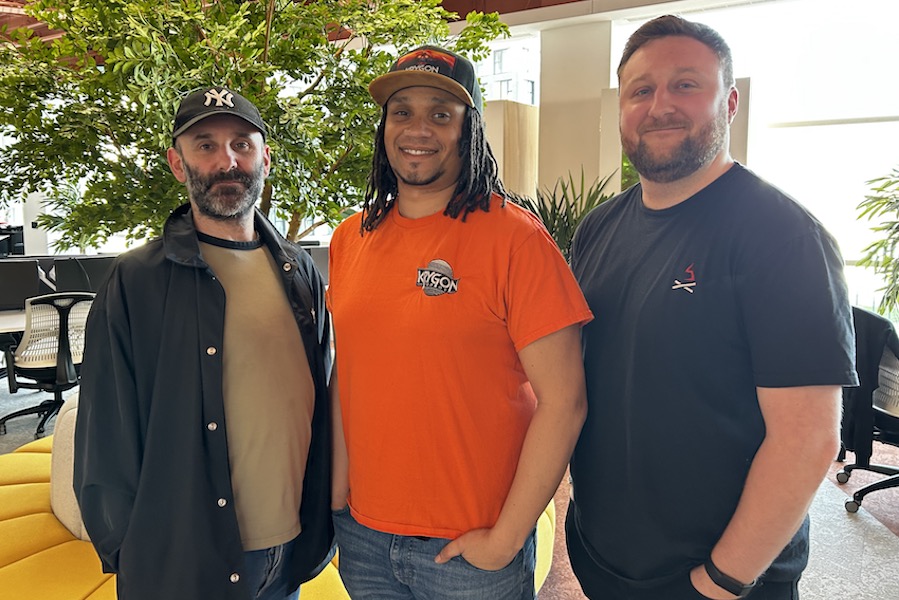“Manchester really exposed me to the power of Literature”
- Written by Thom Bamford
- Last updated 2 years ago
- Featured, People
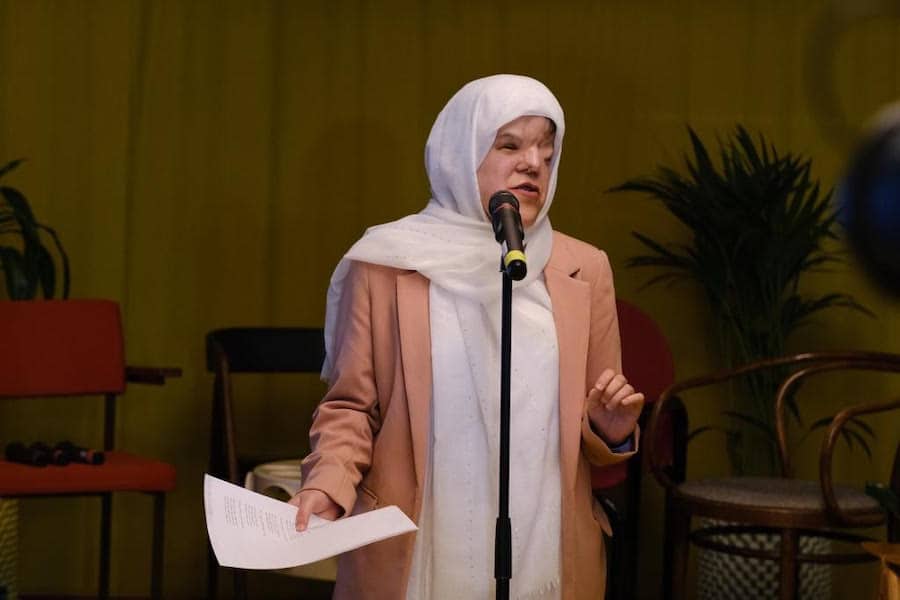
At the age of 26, Afzaly belongs to a collective of poets, artists, models and actors who are dedicated to expressing the customs and dreams of a community that has been suppressed.
She has found a new home in Manchester, where she studies at Manchester Metropolitan University.
Afghanistan is currently in turmoil as the Taliban recaptured power following the US’ withdrawal of troops in 2021.
In August 2021, the Taliban captured Kabul, the capital city, and declared victory in the war.
The Afghan government collapsed, and President Ashraf Ghani fled the country. Many Afghans feared for their safety and sought to flee the country, leading to chaos and tragedy at the Kabul airport as people tried to evacuate.
The international community has expressed concern about the potential for the Taliban to violate human rights, particularly with regard to women’s rights, and the possibility of the country becoming a haven for terrorist groups.
As things stand, the situation remains uncertain, and it is unclear how the Taliban will govern the country moving forward.
Hadisa first came to the UK in 2014 for surgery and has since found a home here.
We sat down with her to discuss her life in the city, the situation back home and how she is finding life in Manchester.
How did you first get into creative writing?
Well, it all started when I was in Afghanistan. I used to write about my daily experiences and turn them into short stories in Dari, my native language.
When I came to the UK and was in the hospital undergoing surgeries, I wrote my first poem with the help of a tutor.
Although my English was not good at the time, everyone was pleased with the poem. Later, at an event, I read the poem and received a lot of encouragement to write more.
In 2016-17 I participated in programs for refugees and asylum seekers when I lived in Rotherham, which gave me opportunities to read my work.
Through these programs, I began to focus on writing about women’s experiences in Afghanistan.
And can you tell us a bit about what the current situation is like for women in Afghanistan?
At the moment, what is happening is that women are completely stripped of their rights.
They’re not allowed to go to school or university. The Taliban closed the schools and universities a few months ago, claiming it was because of the winter and that they would reopen this month, but nothing has happened. Women are also not allowed to work and there are other restrictions such as not being allowed to take a taxi. If a driver is found taking a woman somewhere, he is punished and the woman is questioned and punished too.
Before the Taliban, there was no dress code for women in Afghanistan. Now, women must wear black and cover themselves entirely. They’re not allowed in certain places if they don’t follow these rules. There are instances where women go missing and are later found to have been taken by the Taliban, who sometimes rape them.
My niece was in the last year of high school before the Taliban came. She was going to go to university, but the university keeps delaying her enrolment. It’s been two years now and nothing is happening.
I really want people to hear these stories and learn about what’s happening in Afghanistan. When the Taliban first came, everyone thought they had changed, but they haven’t. They’re doing the same things they did 26 years ago, but now with social media, people are more aware of what’s happening.
Are you part of a collective trying to raise awareness of the situation in Afghanistan?
Yes, but we are a diverse bunch. They are writers, actors from Afghanistan, an actress, singer, actor, and model. We are all doing the same thing.
If you want, I can give you some of their names. There are different charities, such as Afghan Charity Week, which is student-based in the UK. They change their members every year. Most of us are Afghans from universities in the UK, where we raise money and awareness for Afghanistan. We collaborate with other charities on different projects.”
How did you end up coming to to the UK?
In 2014, I came to the UK for surgery. I had visited the UK three times before that, but only for surgery related to my facial deformity. This was caused by the war in Afghanistan, where my mother was pregnant when the Taliban took over. The stress and danger she experienced caused my facial deformity. I was discovered by a UK charity that helps children affected by war or illness, and they brought me to London for surgery.
I returned to Afghanistan after 11 months, but personal issues led me to apply for asylum with my father. Writing was definitely an escape for me, especially when I was younger and was bullied. I wrote short stories where I made myself a character to enter a different world. I won a prize for a poem I wrote called ‘By Battersea Bridge’, and my work has been published in Ariana Magazine, a UK Afghan magazine that focuses on the positive aspects of Afghanistan.
How did you become involved in poetry and art, and what inspired you to use these mediums to express the traditions and aspirations of Afghanistan?
When I was a teenager, I used to write short stories about my encounters with people around me. The first time I wrote a poem was in 2014 when I was in London for surgery. It was called “by Battersea bridge”. A few years later, I read that poem at a BAME event where I received so much encouragement to write more. As I explored my writing more, I realised that my writing was inspired by my personal experience and the events that took place in my country Afghanistan.
How do you see the role of artists and writers in Afghanistan, and what do you hope to achieve through your work?
I do not see a clear and bright horizon for our artists inside Afghanistan. These are humans the same as us who are stuck in a real dystopian world. I hope to shine a light on the situation that Afghanistan is in currently but also to push the agenda of what is next for Afghanistan if the Taliban are not stopped. As an Afghan woman outside the country, I find myself obliged to speak up and use my voice and I hope anyone reading this does the same and speaks up against any injustice.
People can write to their local MP or participate in local demonstrations asking the government to help pressure the Taliban to let girls learn and work.
Manchester has a rich tradition of writers and poets, are there any writers or Poets in the U.K. whose work you enjoy?
I enjoy Carol Ann Duffy’s work as well as some local writers like Ali Al-Jamri to Meral Alizada a British Afghan poetess.
How has the political situation in Afghanistan impacted the art and literary scene in the country, and what opportunities and obstacles exist for Afghan artists and writers today?
Currently, the artists and writers in Afghanistan are not able to express themselves freely whether they’re male or female.
Afghan women and girls are banned from schools, universities and workplaces which is restricted them even further. There are programs like Future Learn for university students inside Afghanistan, but for artists and singers, I don’t see any programs as they are hiding from the Taliban.
There are charities like Rahela Trust which helps students and Afghan people inside the country.
And Rahyaab charity which helps people with disabilities and also a UK student-based charity called Afghan Charity Week which collaborates with different charities in the country to help people instead Afghanistan which I’m part of. There are loads of obstacles that the charities face and there is internet accessibility with the students inside the country face when it comes to online teaching.
Can you share with us some of your favourite works of Afghan poetry or art, and what makes them special to you?
Afghan literature is ancient and if I share one of my favourite poets then it has to be the 13th-century poet called Rumi. And I resonate with Khalid Husseini’s work mostly.
Kite flying has been a powerful literary symbol in Afghan literature, representing themes such as freedom, childhood innocence, and the struggle for survival. In your opinion, what does the act of flying a kite represent to you?
The act of flying kites represents liberation to me as a woman, also you could fly them over borders. And their colours combined and joined together represent our differences that in the end make us all beautiful. If we could put aside our differences we could fly high and see the exquisite world together.
How are you finding life in Manchester?
Manchester exposed me to literature and the art of words and the power it holds.
I feel like I’m at home because I have a strong connection with so many people who think like me. It’s also great to connect with people who share the same background as me.
Even my non-Muslim friends in Manchester are amazing. They’re so warm and welcoming, full of love and positivity.
I love that I’m constantly making friends with poets and artists. And mostly I love the diversity that Manchester holds. You can never feel excluded in the city.
And important of them all I get to go to Manchester Metropolitan University close to Carol Ann Duffy, who’s the best!
You can see what Hadisa is up to on her instagram, by clicking here.
- This article was last updated 2 years ago.
- It was first published on 5 April 2023 and is subject to be updated from time to time. Please refresh or return to see the latest version.
Did we miss something? Let us know: press@ilovemanchester.com
Want to be the first to receive all the latest news stories, what’s on and events from the heart of Manchester? Sign up here.
Manchester is a successful city, but many people suffer. I Love Manchester helps raise awareness and funds to help improve the lives and prospects of people across Greater Manchester – and we can’t do it without your help. So please support us with what you can so we can continue to spread the love. Thank you in advance!
An email you’ll love. Subscribe to our newsletter to get the latest news stories delivered direct to your inbox.
Got a story worth sharing?
What’s the story? We are all ears when it comes to positive news and inspiring stories. You can send story ideas to press@ilovemanchester.com
While we can’t guarantee to publish everything, we will always consider any enquiry or idea that promotes:
- Independent new openings
- Human interest
- Not-for-profit organisations
- Community Interest Companies (CiCs) and projects
- Charities and charitable initiatives
- Affordability and offers saving people over 20%
For anything else, don’t hesitate to get in touch with us about advertorials (from £350+VAT) and advertising opportunities: advertise@ilovemanchester.com
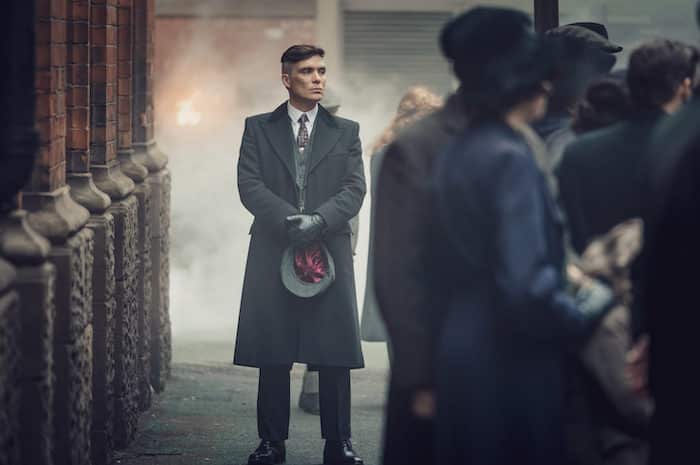
Now you can own a piece of TV history and support a much loved NHS Charity

The welcoming Manchester community where board games build friendships

Everything you need to know about the St George’s Day Parade 2025

Best bars and pubs to watch the football and live sport in Manchester

Discotheque Royale vs Piccadilly 21s: which was your favourite 90s Manchester club?
